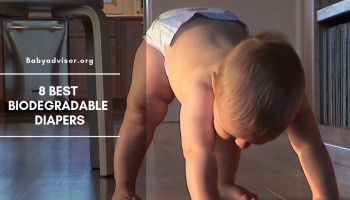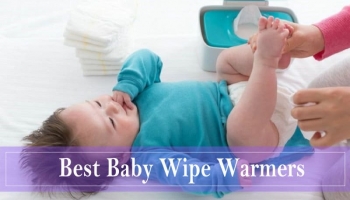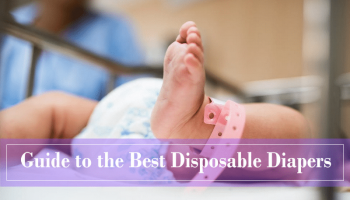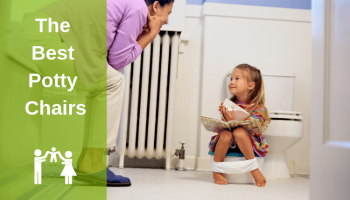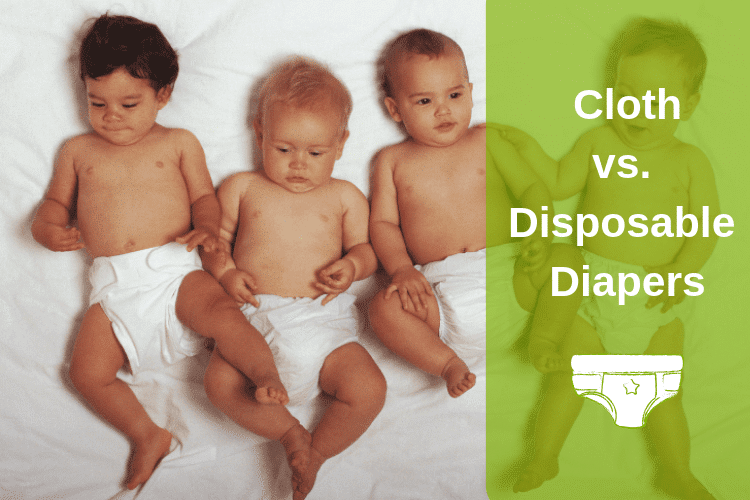
Parents today have tons of options available when it comes to raising your baby. Breastfeeding or bottle-feeding, baby food or baby led weaning, and cloth or disposable diapers are three of the big picks that parents face in the first year of their child’s life.
Cloth diapers are the original choice for diapers, but many people have no idea how far advanced they have come in the last 10 to 15 years. You might picture your grandma in a diaper with pins that leaked everywhere. So, naturally, you always felt like disposable diapers were the ideal pick.
On the other hand, you might be dedicated to the idea of being a cloth diapering parent. Either way, you should take a look at the pros and cons for both options because a case can be made for both. Cloth diapers have come a long way, and disposable diaper brands develop new ideas constantly to improve their design and meet the desires of parents.
So, we are going to dive into a few different factors that you might consider when making a choice. We will look at the pros and cons of each type of diapering. Remember, there is no black and white choice here. Cloth diapers may work for your best friend for years, but disposable diapers work for your family. That’s OK! Don’t let anyone tell you otherwise.
Health and Comfort
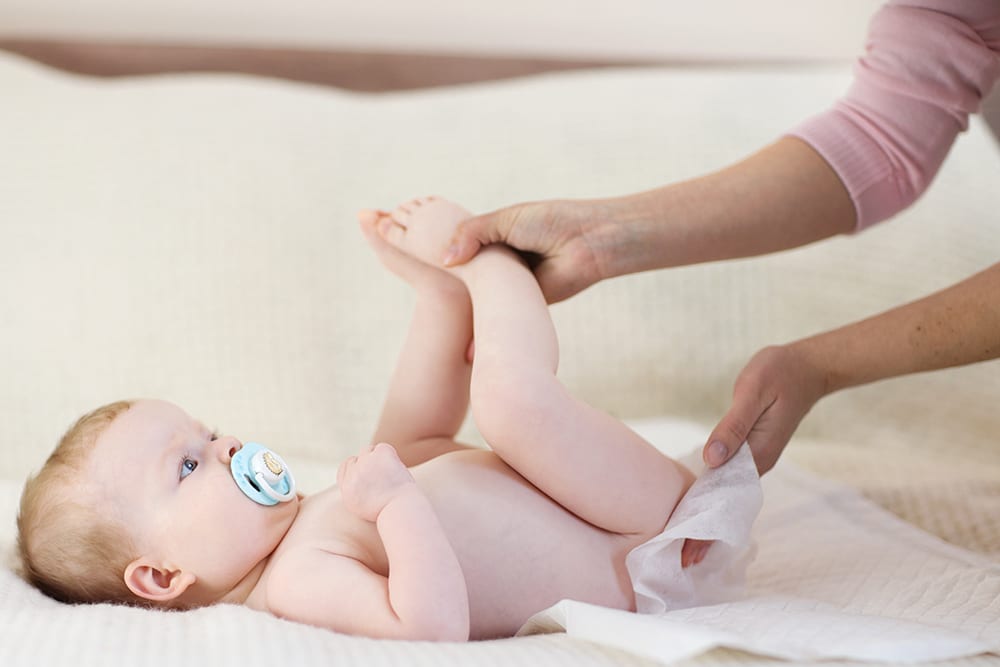
When it comes to health, there are little differences between cloth diapers and disposable diapers. The most important thing is that you need to change your baby’s diaper on a frequent basis. Leaving a baby in a full, soiled diaper increases the risk of diaper rashes. Plus, who wants to sit in poop? That doesn’t feel good for your baby.
Some parents state that their child has fewer diaper rashes when they use cloth diapers. That could be due to your child having a sensitivity to a chemical used in the disposable diapers. The chemical dioxin is used in the making of disposable diapers, and it is a known carcinogen. So, for those families who want to reduce exposure to chemicals, cloth diapers may be a better choice.
Disposable diapers are more breathable, but their absorbent chemicals irritate some children. Some kids are sensitive to wetness, and that’s where disposable diapers shine in this category. The super absorbent inner layer of the disposables help pull away moisture, so your baby feels dry.
Many babies prefer to softer feel of cloth diapers. You can purchase cloth diapers in a variety of fabrics; organic cotton or organic bamboo are two super-soft options! Some disposable diapers are soft as well! You might have to try different brands to find one that your baby finds the most comfortable.
| Cloth Diapers | Disposable Diapers |
|---|---|
|
|
See our The Best Biodegradable Diapers full review.
Price
An average family spends between $2,000 and $3,00 per baby for two years of disposable diapers. Wow! That’s a lot of money. Of course, there are other ways to lessen that cost by using coupons, stockpiling during sales, and picking a store brand diaper. Either way, expect to pay thousands for each child.
If you want to purchase your cloth diapers and accessories, they’ll run about $800 to $1,000 depending on the style and amount you purchase. Remember, these diapers can usually be used for more than one child. So, if you use them for two kids, split that cost in half for each baby. There is also a market for used cloth diapers, allowing you to recoup some of your costs.
Some families are able to cloth diaper for as little as $300 to $500 by using cheaper brands and styles.
Some parents like to use a cloth diaper laundering service. These services are typically only available if you are in a larger city. The price will run you closer to disposables, around $2,500. Some parents want the benefits of cloth diapers, like fewer rashes and being environmentally friendly, without having the extra laundry.
The problem with the cost of cloth diaper is coming up with the money all at one time. If you are pregnant, spread the cost across your entire pregnancy. On the flip side, once you have a stash of cloth diapers, you don’t have to worry about the stress of budgeting each week for disposable diapers. Overall, cloth diapers are cheaper and there are no recurring costs each month. Here the cloth vs disposable diapers cost differences:
| Cloth Diapers | Disposable Diapers |
|---|---|
|
|
Convenience
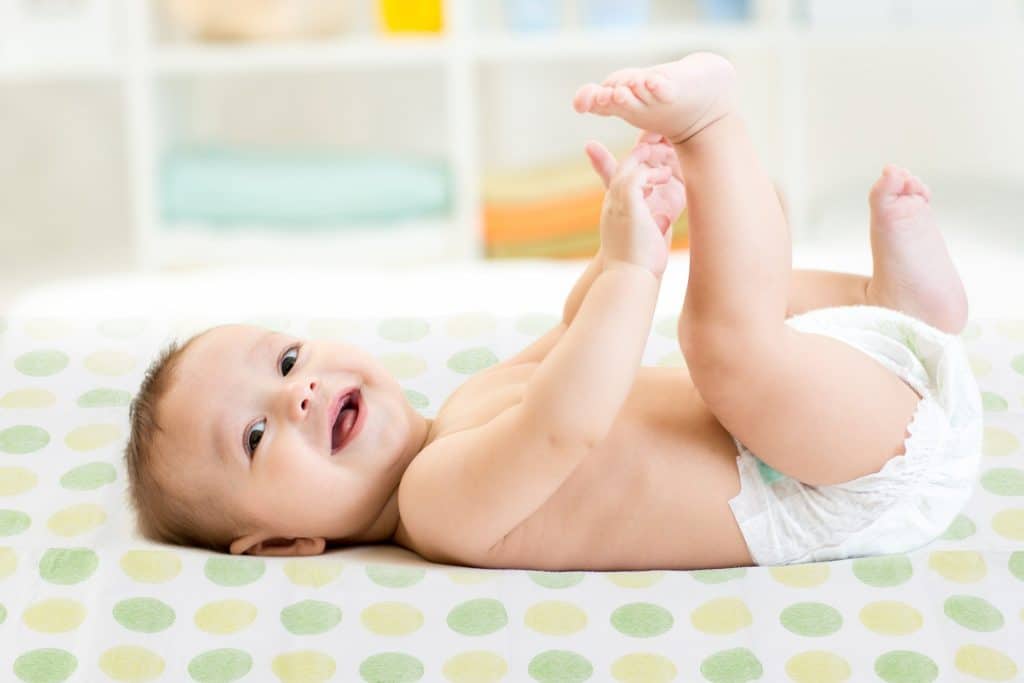
Convenience is a huge factor for many parents! The natural assumption is that disposable diapers are the more convenient option, but that’s not always the truth. Let’s take a look.
Modern cloth diapers close with either Velcro or snap closures. The days of folds and pin closures are long gone (unless you prefer that route). Cloth diapers have fitted shapes that work with your baby’s body, waterproof bands around the legs and waist to prevent leaks, and some have removable linings! Putting them on and off can be as easy are disposable diapers.
If you decide to use cloth diapers, you will need a wetbag, which is a bag that you can store wet diapers inside without getting dry items around the bag well. Wetbags are also great for taking swimsuits home! When you are out and about, you’ll change your baby just like you would with disposable diapers. The only difference is that you will put the dirty diaper into a wetbag rather than toss it in the trash.
That brings up washing diapers. Is washing cloth diapers hard? The short answer is: No, it’s not hard! What’s an extra two or three loads of laundry per week? Babies go through tons of clothes and blankets anyway! A sample laundry routine looks like this.
- Place dirty diapers in a large, hanging wetbag or pail.
- Once two or three days go by, dump all of the dirty diapers and the bag into the washer.
- Put on a rinse cycle. This cycle gets all of the urine and feces of the diapers.
- With a soap of your choosing, set your washer on a hot, heavy cycle your washer has available with an extra rinse cycle.
- You can opt to do another rinse cycle to make sure all of the soap crystals are out. Residual soap can cause a weird smell in cloth diapers.
- Line dry or dry in the dryer! You are done, aside from folding the diapers.
It sounds like a lot, but your time spent at the washer may total 5 minutes if that!
Now, let’s think about disposable diapers. Disposables began with the intention to make it easier for parents. Once they are used, you toss them out. Most parents have no idea that you are supposed to toss out feces into the toilet before tossing in the trash even if you use disposables.
So, disposables have the extreme convenience factor going for them. However, don’t count cloth diapers out. Once you get used to using them, they are very easy, but you do have to wash them and remember to take them out of the diaper bag once you get home from the store.
| Cloth Diapers | Disposable Diapers |
|---|---|
|
|
Environment
So, the last factor to consider is the environment. This reason is one of the top advantages of cloth diapers, but the answer isn’t totally cut and dry.
Disposable diapers use up valuable resources, such as trees, as well as non-reusable resources like plastics. Manufacturers use dozens of chemicals. Most disposable diapers are not biodegradable, but some manufacturers are starting to create more environmentally-friendly disposable diapers. Think about it – there is a good chance YOUR diapers are still in a landfill somewhere not fully degraded yet.
Babies can use between 5,000 and 6,000 disposable diapers before they are fully potty trained. That’s a lot of diaper changing! Disposable diapers account for 7 percent of nondurable household waste in landfills!
Cloth diapers are reusable, but you do have to wash them. That means it does use up clean water and energy. Depending on the soap you use, you may contribute more chemicals back into the water supply.
| Cloth Diapers | Disposable Diapers |
|---|---|
|
|
Also, You can read more about The Best Disposable Diapers.
Potty Training
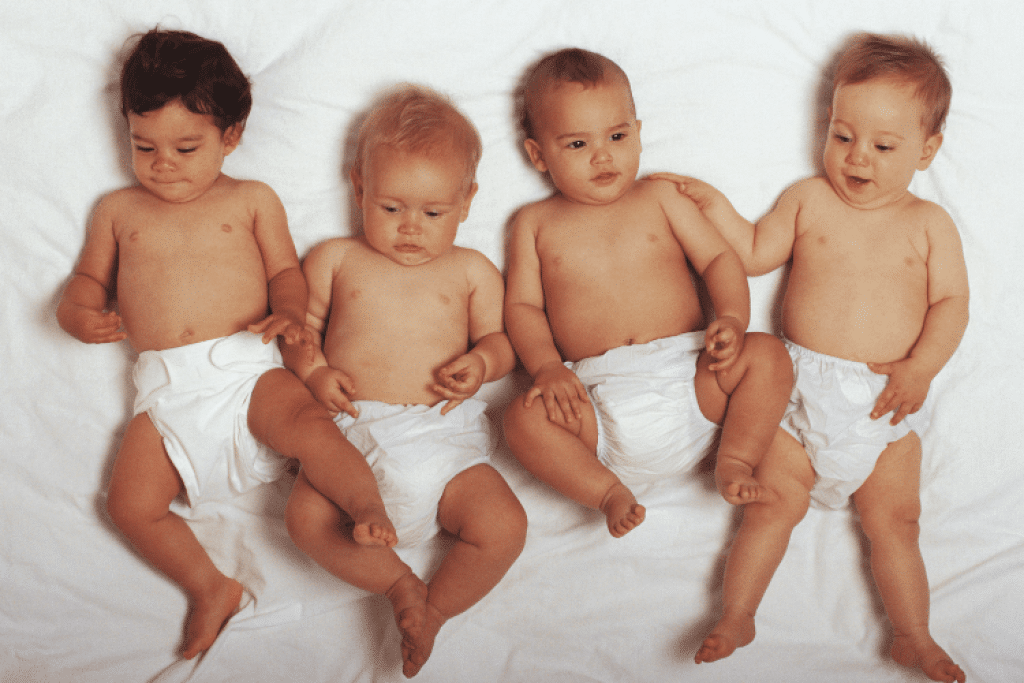
Some parents claim that babies who wear cloth diapers potty train earlier than babies who wear disposable diapers. There is no scientific evidence of this. In fact, the average age of toilet training has increased from 18 months to 3 years old.
Most evidence shows that the age of potty training tends to be influenced more by culture rather than the diapering mode you select. However, some families do claim that their cloth diapered kids potty trained sooner than the kids who used disposable diapers. They claim that its because their toddlers were able to feel their wetness and learned to dislike the feeling. Disposables hide the wetness, but you want to give your child a reason to want to stop using a diaper!
You won’t know if this is true for your child until you try. It’s not a reason to select your diapers, but if you are concerned about potty training, you should know that there are cloth options for trainers. You won’t have to switch to disposable training pants unless you want!
| Cloth Diapers | Disposable Diapers |
|---|---|
|
|
You may be interested in The Best Swim Diapers.
Making the Decision Between Cloth and Disposable Diapers
Parents have to make their own personal choice and decide which diapers are best for their child. The American Academy of Pediatrics takes no stance on the cloth vs. disposable diapers debate. The Environmental Protection Agency (EPA) doesn’t either.
You may want to learn more about The Best Overnight Diapers.
So, that means the decision is up to you! You have to decide which route works for your family. Remember, neither choice is permanent and you can change your mind if it doesn’t work for your baby!



